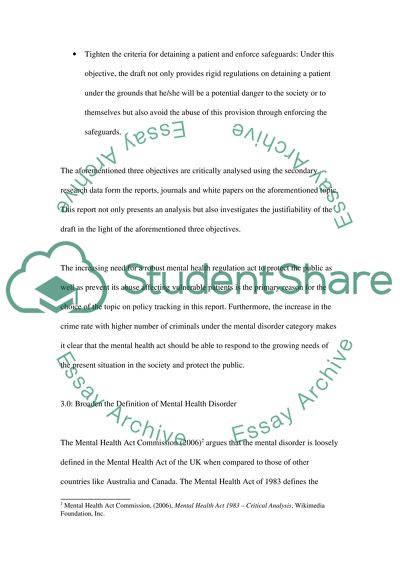Cite this document
(“Mental Health Bill Assignment Example | Topics and Well Written Essays - 3500 words”, n.d.)
Retrieved from https://studentshare.org/sociology/1503376-mental-health-bill
Retrieved from https://studentshare.org/sociology/1503376-mental-health-bill
(Mental Health Bill Assignment Example | Topics and Well Written Essays - 3500 Words)
https://studentshare.org/sociology/1503376-mental-health-bill.
https://studentshare.org/sociology/1503376-mental-health-bill.
“Mental Health Bill Assignment Example | Topics and Well Written Essays - 3500 Words”, n.d. https://studentshare.org/sociology/1503376-mental-health-bill.


